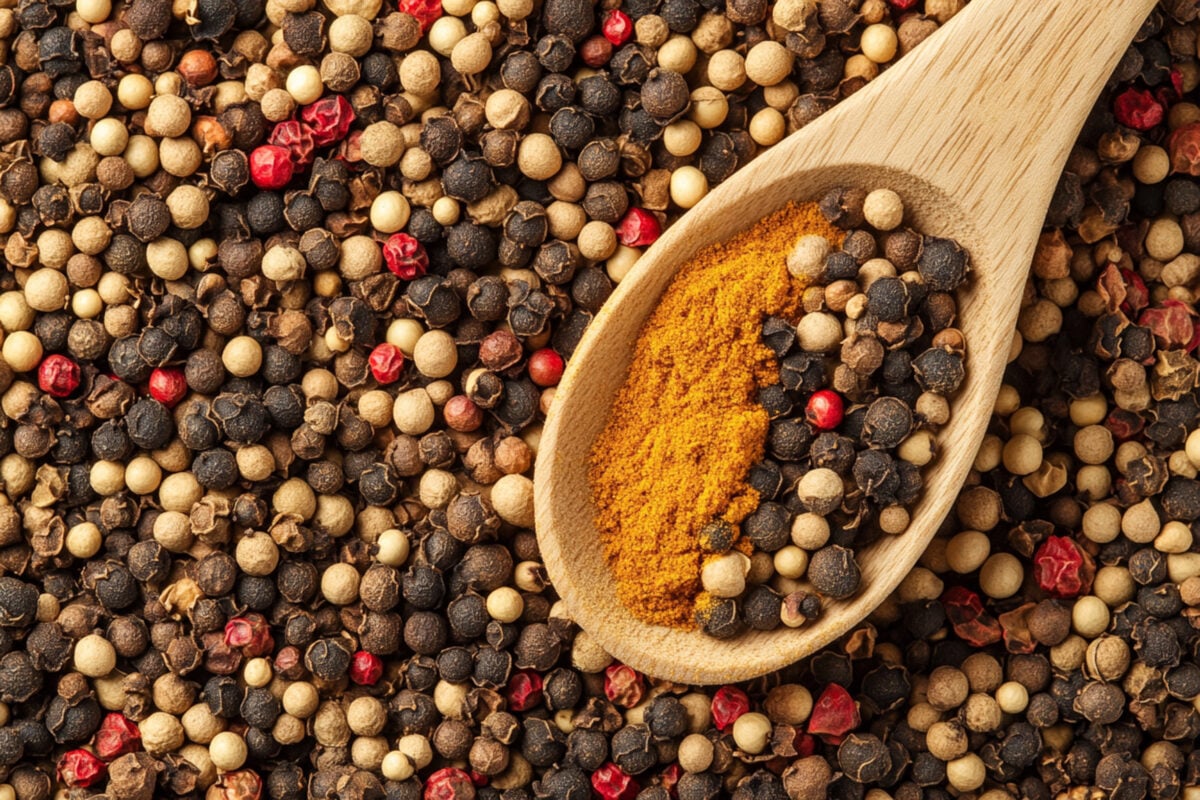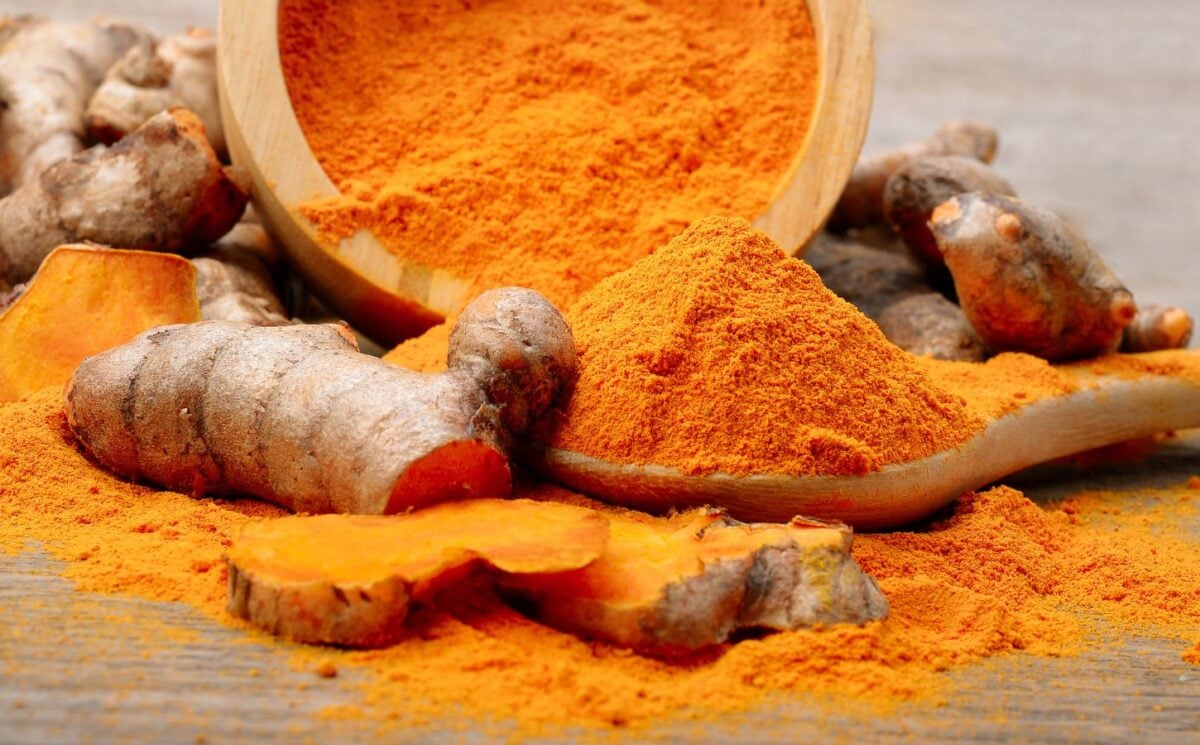The YouTube channel Plant Based Science London recently shared a video on what you need to do to get the most out of turmeric and its active compound, curcumin. Turmeric is often praised as a powerful anti-inflammatory and antioxidant, with studies linking it to reduced risk of diseases like cancer, Alzheimer’s, rheumatoid arthritis, and type 2 diabetes. But if you’ve been adding turmeric to your meals or taking supplements, there are some things you should bear in mind.
The video explores why turmeric doesn’t always deliver on its promises – and more importantly, how to fix that. It features a clip from Dr Michael Greger, founder of NutritionFacts.org, who highlights a study where turmeric halted the growth of human leukemia cells. “These cells stopped growing, stopped replicating, stopped dead in their tracks,” Dr Greger explains.
Read more: Even Low-Level Consumption Of Processed Meats ‘Not Safe,’ Says Study
But despite these findings, curcumin – the key compound in turmeric – has very low bioavailability. That means our bodies struggle to absorb it. The video explains how pairing ground turmeric with black pepper and healthy fats in meals can dramatically increase absorption, and why supplements might not be the answer. Backed by research from Texas A&M and University College London, this video breaks down how to make turmeric truly work for you.
Why turmeric isn’t absorbed well
Curcumin is the key compound in turmeric. It is responsible for most of turmeric’s health benefits. But when we consume turmeric, only a small amount of curcumin makes it into our bloodstream.
“This is because our liver may think curcumin is a foreign substance and so makes it water soluble in order to get rid of it,” the video explains. This is the body’s way of clearing out unwanted compounds.
As a result, curcumin is flushed out quickly. “We see only a tiny rise in the levels in our bloodstream,” says the narrator. That’s one reason why turmeric may seem ineffective, even if you take it every day.
The simple way to boost curcumin absorption
There’s a well-researched solution: black pepper. Black pepper contains piperine, a natural compound that stops the liver from breaking down curcumin too fast.
“In this study researchers found that consuming just ¼ tsp of black pepper, the levels of curcumin skyrocketed,” the video explains. “The same amount of curcumin was consumed, but the bioavailability shot up 2000 percent.”
Even a much smaller amount – like 1/20th of a teaspoon- can still make a big difference. The video also explains a second method: eat turmeric with a source of healthy fat. Eating turmeric with fat allows some curcumin to be absorbed via the lymphatic system, which reduces how much is immediately broken down by the liver. This increases bioavailability, but curcumin does not completely bypass the liver.
“This means curcumin can be directly absorbed into the bloodstream through our lymphatic system,” says the host. The liver doesn’t get a chance to remove it. Healthy fat options include avocados, nuts, seeds, and coconut. Pairing turmeric with one of these can improve its absorption in the body.
See the video here
Food vs supplements: what actually works
Many people try to get the benefits of turmeric through supplements. But a new study shows this might not be effective. The video highlights a six-week study from University College London. Researchers gave 100 participants three different approaches. One group took turmeric capsules containing about one teaspoon of powder. The second group took a placebo. The third group added one teaspoon of turmeric to their food daily.
“What the researchers found was that those taking the placebo had no change and neither did those taking the turmeric supplement,” says the host. “However, the volunteers who had been adding turmeric to their food did have significant changes.”
Those changes were measurable at the genetic level. A cancer-fighting gene became more active in participants who ate turmeric in food. This suggests that turmeric may only work when consumed as part of a meal. It’s not just what you take, but how you take it. There have also been a small number of recent cases of turmeric supplements causing liver issues, so you should always consult a healthcare professional before taking them.
How to make turmeric work for you

To get the full benefits of turmeric, you may be best advised to use the whole food or powder, not just a capsule. The video recommends three steps.
First, consume turmeric as the whole root or ground powder. Add it to meals instead of relying on pills. Second, pair it with about ¼ teaspoon of black pepper. Piperine helps keep curcumin in the bloodstream. Third, eat turmeric with a source of healthy fat. This helps your body absorb it better.
If you’ve ever wondered about the reason why turmeric hasn’t lived up to its promises, these simple changes could make all the difference.
You can find more science-back plant-based videos on the Plant Based Science London YouTube Channel.
Read more: Sunflower Meal Is A ‘Promising’ New Protein Base For Meat Alternatives, Says Study






